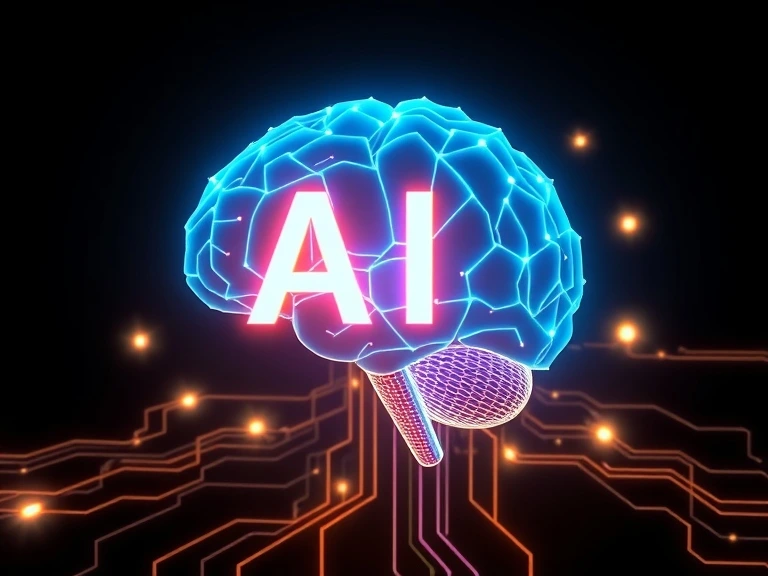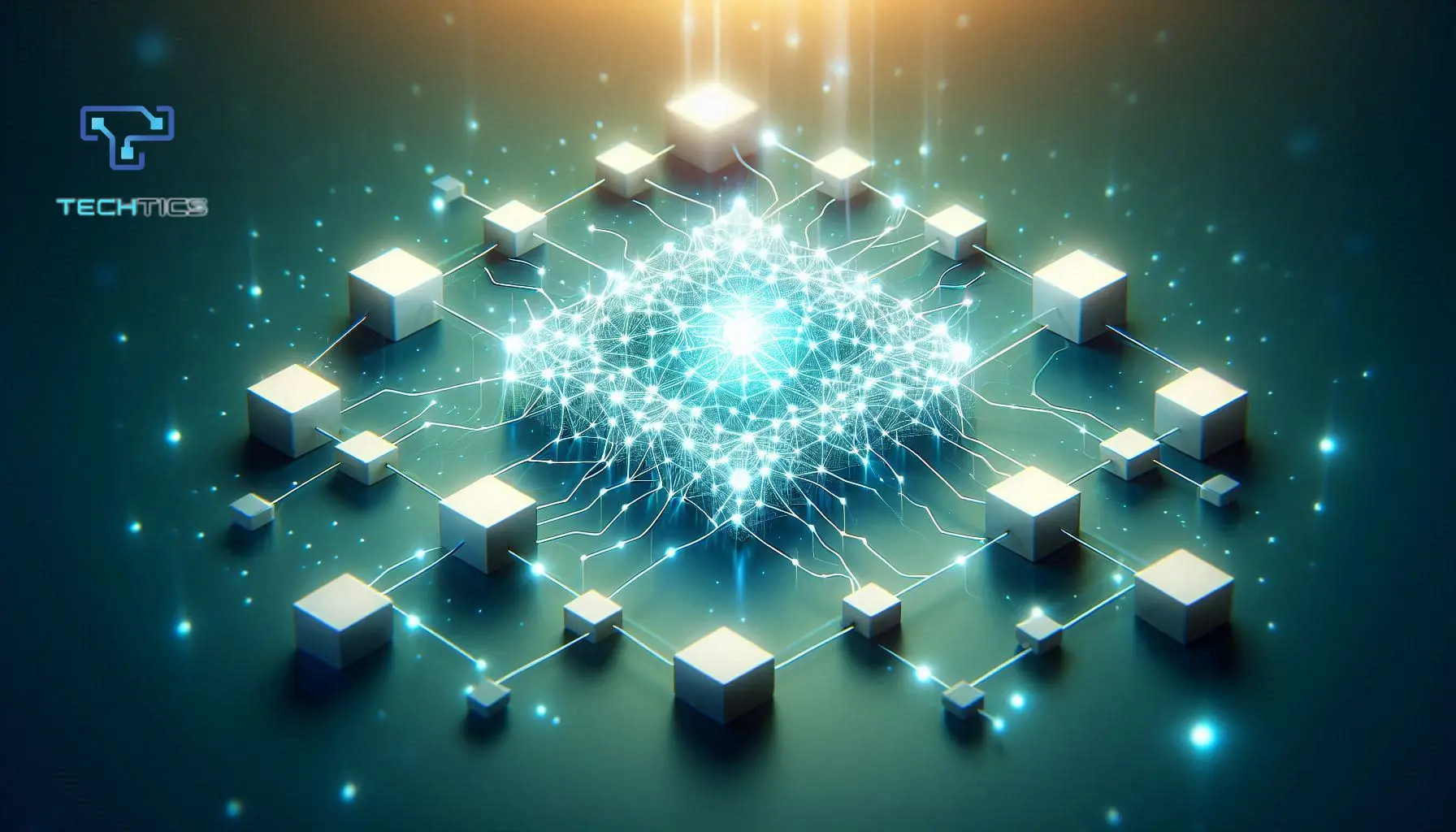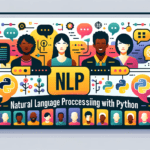Blockchain technology, originally popularized as the backbone of cryptocurrencies like Bitcoin, is evolving into a much broader, more transformative force. At its core, blockchain offers decentralization, transparency, and security, features that are becoming increasingly important as AI systems grow more powerful. As the foundation for decentralized AI systems, blockchain has the potential to level the playing field—ensuring that access to AI technology and the rewards it delivers are equitable, transparent, and fair.
In a world where tech giants like OpenAI, Google, and Anthropic dominate the AI landscape, blockchain can help democratize access, enabling a more decentralized and collaborative approach to AI development. But the journey toward realizing this vision hasn’t its challenges. Let’s explore how blockchain and AI can converge to create a decentralized future and what innovative solutions are paving the way forward.
The Promise of Decentralized AI Systems
The AI industry is rapidly expanding, with models becoming more powerful and complex by the day. However, with this growth comes an increasing demand for computing power, data, and financial resources. As AI models like GPT-4 and its successors grow in scope, their data needs scale exponentially, making it harder for smaller entities to compete with large corporations. This creates an imbalance where only the most resource-rich companies can access and leverage cutting-edge AI models.
Challenges in Decentralized Data Management
While the concept of a decentralized AI ecosystem is promising, there are significant technical hurdles to overcome, particularly around data access, management, and analysis.
One of blockchain’s inherent limitations is its architecture. As a distributed ledger, blockchain is essentially a slow, sequential database, which makes it difficult to manage the large volumes of data required by AI systems. Moreover, blockchains need to integrate more easily with traditional data environments or even with other blockchains. This lack of interoperability makes it challenging to pull data from the blockchain into a relational database for analysis. This process often requires complex and centralized solutions, defeating the purpose of decentralization.
Another challenge is the reliance on oracles—external services used to feed off-chain data into blockchains. These oracles introduce centralization and security risks, making the entire system vulnerable to potential manipulation. To fully realize the potential of decentralized AI, these challenges need to be addressed, and fortunately, innovative solutions are emerging to tackle them.
Innovative Solutions Leading the Way
Several forward-thinking companies and projects are developing solutions to address the challenges posed by integrating blockchain and AI.
Space and Time is one such innovator, providing a decentralized data warehouse that bridges the gap between blockchain and traditional enterprise data systems. Their Proof-of-SQL consensus mechanism cryptographically verifies SQL database queries, ensuring that the underlying data has not been tampered with. This allows AI models to interact with blockchain data without the need for cumbersome transformations or manual interventions. For instance, an AI chatbot like ChatGPT can access blockchain data seamlessly, paving the way for more sophisticated AI applications that operate on decentralized networks.
OG’s dAIOS (Decentralized AI Operating System) is another notable development. This system uses blockchain to coordinate decentralized AI resources such as storage, compute power, and data availability, ensuring that AI applications can operate securely and transparently on-chain. With three core components—storage for managing large data volumes, data availability for verification, and serving to power AI training and inference—dAIOS provides the infrastructure necessary for developers to build decentralized AI models with ease.
SQD is addressing blockchain’s architectural inefficiencies by developing an advanced data indexing tool that aggregates on-chain data in parquet files and distributes them across nodes in a decentralized data lake. This architecture allows decentralized applications (dApps) to quickly and efficiently query the blockchain, resolving one of the key bottlenecks in decentralized AI systems.
AI’s Role in Enhancing Blockchain

While blockchain holds the potential to transform the AI landscape, AI can, in turn, enhance blockchain systems in several ways.
One of the most promising applications lies in blockchain security. AI can be used to monitor transactions and network activity in real-time, identifying anomalies and mitigating security threats before they escalate. This could significantly enhance the security of blockchain networks, making them more robust and reliable.
AI can also make smart contracts more intelligent and capable. By analyzing contract conditions and predicting potential issues, AI can ensure that smart contracts are executed smoothly. Natural language processing (NLP) algorithms can even enable smart contracts to interpret legal agreements. At the same Time, generative AI could automate the creation of smart contracts altogether, eliminating the need to learn specialized programming languages like Solidity.
In the domain of tokenized real-world assets (RWAs), AI can enhance the valuation and management of assets like stocks, real estate, and art. By analyzing market trends and asset provenance, AI can calculate the fair market value of these tokens in real Time, helping investors make more informed decisions.
Lastly, AI’s predictive capabilities can be applied to digital asset trading, where it can monitor market trends and forecast future price movements. This could provide traders with valuable insights to enhance their decision-making, hedge their portfolios, and capitalize on market volatility.
The Future of Decentralized AI
As the AI industry continues to grow, the need for decentralization will only become more critical. Blockchain, with its transparent, secure, and decentralized architecture, offers a compelling solution for distributing AI resources and democratizing access to AI technologies. The convergence of AI and blockchain will not only make AI more accessible but will also create a more equitable system that rewards contributors fairly, fosters innovation, and ensures that no single entity dominates the landscape.
As industry leaders like Space and Time and OG’s dAIOS pave the way with decentralized data solutions, the future of AI looks promising. These innovations will allow AI applications to operate on-chain securely and transparently, creating new opportunities for collaboration, openness, and competition in the AI space. By leveraging blockchain technology, we can ensure that AI’s transformative potential benefits everyone—not just the privileged few.
In short, the convergence of blockchain and AI is set to democratize the future of technology, unlocking new possibilities for innovation, security, and equitable access to resources. The future of AI is decentralized, and blockchain is the key to making that future a reality.




